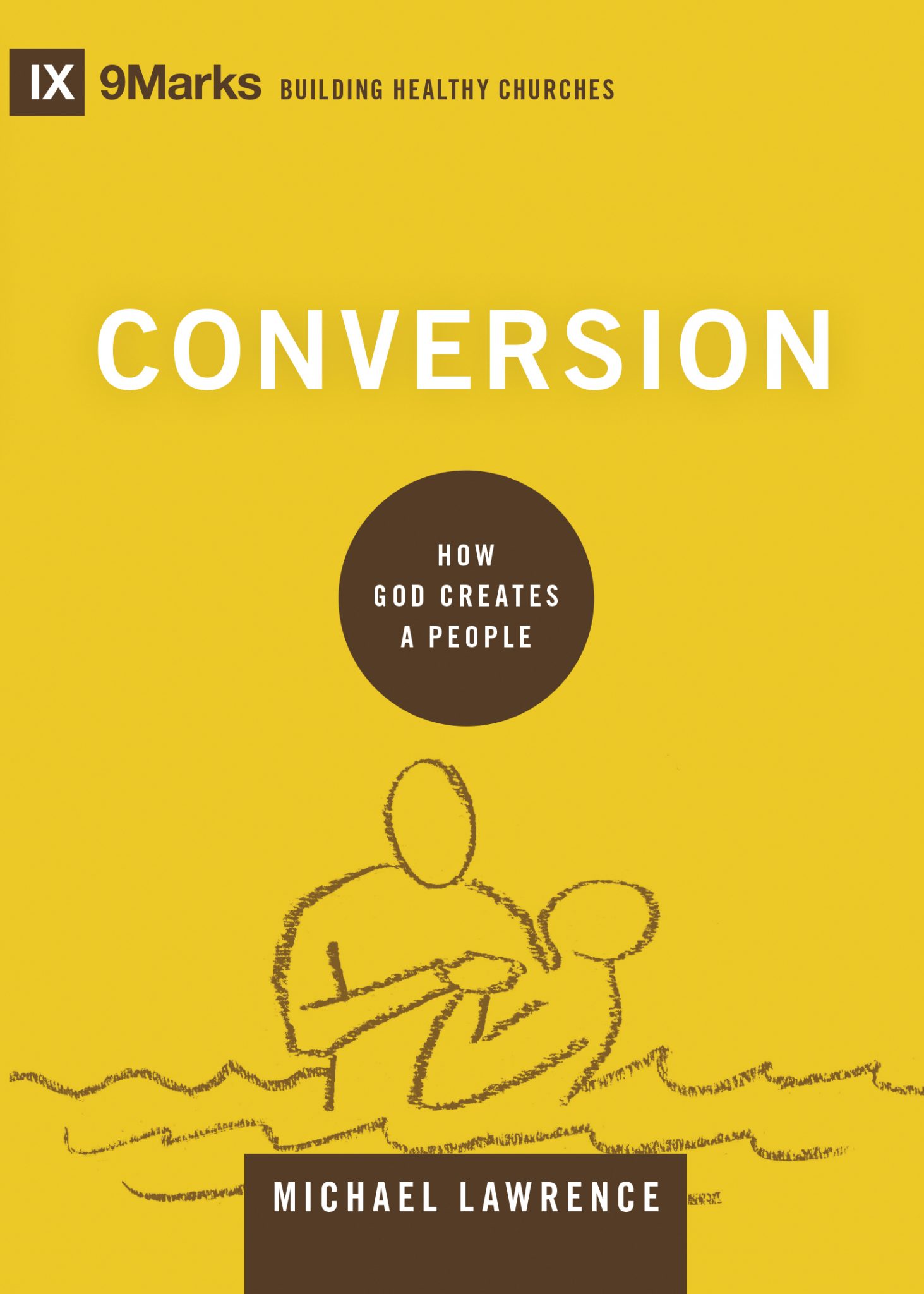What we believe about conversion matters, but you don’t have to look far to see a lack of clarity on the doctrine. Faulty beliefs about the nature of biblical conversion fuel practices that are harmful to the spiritual well-being of people and churches alike.
In Conversion: How God Creates a People, Michael Lawrence—lead pastor of Hinson Baptist Church in Portland, TGC Council member, and author of Biblical Theology in the Life of the Church—has given us an incisive guide as we seek to display God’s glory in conversion to a watching world.
Define the Real, Expose the Fake
When thinking through the nature of conversion, we have a tendency to downplay and domesticate. I think we do this with good intention. We want to see people come to the Lord, so we offer an achievable salvation. It’s still Jesus, but now he’s a mere guide to a self-improvement system. It’s a conversion in which the markers of faith don’t depend on supernatural regeneration, but can be achieved by anybody motivated enough to look the part.

Conversion: How God Creates a People
Michael Lawrence
The way a church operates says a lot about how they believe people are saved. When a church truly embraces the Bible’s teaching on conversion, they will call people to repentance and faith—not just one-time decisions, therapeutic healings, or moral lifestyles.
This short book was written to help churches rightly understand the difference that a biblical doctrine of conversion should make for teaching, evangelism, discipling, membership, and every other facet of the life of a local church.
Of course, we wouldn’t say it that way (nor would our statements of faith), but the gospel of moral self-reform is alive and well in our churches. As Lawrence writes,
Too often our confessional theology says one thing, while our practical theology says something else. We say that regeneration makes us new creatures in Christ, but then we teach our kids a moralism that atheists could duplicate. (14)
As long as we look nice and try hard, who’s to judge?
The gospel of moral self-reform is alive and well in our churches.
Rather than accepting this counterfeit, Lawrence compels us to looks at how the Bible portrays conversion: not us working on ourselves, but God’s work in us. Biblical conversion is a work of regeneration (John 3:3; 1 Pet. 1:3), re-creation (2 Cor. 5:17; Gal. 6:15), and transformation (Col. 3:10).
God doesn’t just make us nice; he makes us new—new creatures with new desires and the power of God’s indwelling Spirit to help us pursue them. By taking seriously the Bible’s assessment of our sinful state and the impossibility of self-improvement, we’re free to look to Christ as our only hope. As Lawrence puts it, “Christian conversion is a rescue. It’s a rescue from death to life, from wrath to forgiveness, from enslavement to freedom. And it’s God’s rescue. Only he can do it” (45).
While clearly locating the work of conversion in God’s hands, I appreciate that Lawrence also calls us to see our role in this redemptive drama—to repent and believe. By examining Scripture’s description of our response as recipients of grace, Lawrence helps us see how wholehearted trust in God necessarily reorients our worship and changes our lives (cf. 1 Thess. 1:5–7). More than a mere decision, conversion is a “complete reorientation of the heart in worship through repentance and faith” (67).
Implications for Your Life
Lawrence’s treatment of the fundamental aspects of conversion is enough to make the book a commendable read. But he goes further, unfolding the implications for these truths on our lives. One of the most basic evidences of conversion is a desire for holiness, not primarily achieved by our own effort, but through union with Christ (2 Cor. 5:21). As I consider Christ’s righteous sacrifice on my behalf, it makes me actually want to be righteous in my thoughts and actions here and now. Standing secure in Christ’s holiness fuels my desire to grow in personal holiness. If conversion is muddied, so is the impetus for growing in godliness.
God doesn’t just make us nice; he makes us new.
Another crucial implication that flows from conversion is a right understanding of evangelism. Lawrence explains:
Evangelism is faithfully communicating an authoritative message from God, one that warns us about our very real need, whether we feel it or not. It is that message that requires a very particular response. And it is that message that, remarkably, converts sinners like you and me by the power of the Holy Spirit. (91)
Since conversion is first and foremost a miraculous work of heaven, we’re free to engage in the work of evangelism joyfully, knowing that our success isn’t defined by anyone’s response but by our faithfulness in sharing. Phew. Praise God.
Implications for Your Church
While thinking through conversion and all of its personal implications, Lawrence writes chiefly to congregations: “Insofar as our salvation involves a corporate dimension, a book on the doctrine of conversion must also be a book on the church” (43). For example, Lawrence rightly insists that assurance is a community project. But too often churches work in the other direction, becoming too willing to reject those who don’t seem to measure up. Instead of enacting this brand of Pharisaism, the church is called to be a gracious and charitable community, not suspiciously reluctant to accept. There’s room in the body for the immature, the imperfect, the weak, and the wounded. “They don’t belong because they’re mature and perfect in holiness,” Lawrence explains. “They belong because their hope is in Jesus Christ, and that hope is reorienting their lives” (113).
Ultimately, Lawrence paints a compelling picture of the divine work of conversion and how it sets believers apart as a distinct community marked by holy, hope-filled lives and self-sacrificing love. God intends to use this distinction as he calls out from—and then back to—a lost and dying world:
The power and truth of the gospel are displayed when churches live differently (pursuing holiness), love differently (forgiving our enemies), and look different (multiethnic, multigenerational, multi-economic). We testify to Jesus and his good news when our community of love cuts across the lines of growth the world expects, a community that can be explained only by the gospel that changes lives. (87)
May it be so, Lord.



































